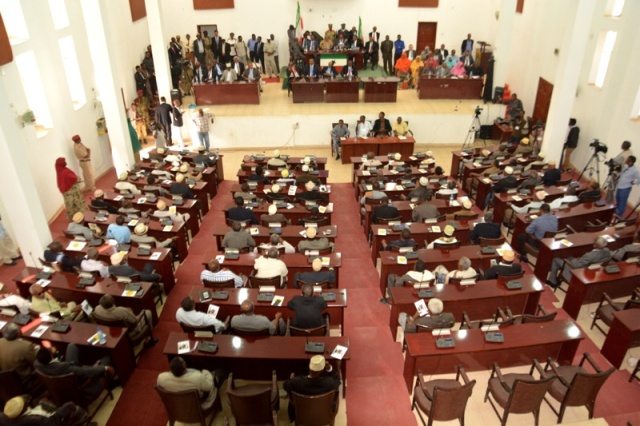(Mohammed Dahir Ahmed)
The legislative body of any nation plays a pivotal role in the fight against corruption. The legislative body or the house of representative has an essential responsibility in its role for combating corruption in all its forms, especially in public life but increasingly also in the economy at large and holding the executive branch of the government accountable to the electorate.
Parliament is expected to perform this duty for the general wellbeing of the society but also sustainable economic progress to become achievable.
According to, the Global Organization of Parliamentarians against Corruption (GOPAC). Corruption was described as the greatest threat to the democratic ideal of self-government through representative institutions periodically selected in free elections by broadly enfranchised citizens. But it was seen as more than that – as undermining economic development, violating social justice, and destroying trust in state institutions.
Citizens, accordingly, bear the heavy economic and social burden of corruption. And, in a democracy that works, they look to their parliament – the people they select to set the framework of law and oversee its implementation – to help lighten this burden.

Firstly, as legislative bodies, parliaments can introduce and enact legislation to regulate campaign and party financing as well as to tackle corruption and money laundering.
Secondly, legislatures can also establish codes of legislative conduct to provide parliamentarians with guidance as to how they are expected to conduct themselves, to explain what appropriate legislative behavior is and to establish sanctions for possible breaches of the codes themselves
Moreover, legislatures are able to set up ethics committees to clarify ethical dilemmas that members may encounter in the course of their legislative activities and to administer the implementation of the code.
Last but not least, legislatures can contribute to curbing corruption by effectively performing their oversight function. By holding the government to account for its actions, its expenditures and its policy implementation, parliaments are (or have the potential to be) the cornerstone of any system of accountability. (Pelizzo and Stapenhurst, 2014).
Somaliland’s current house of representative for which I was elected back in 2005 for a year five year term is still sitting in the chamber with their election is 7 years overdue. The question which is worthy asking is have they neglected their role in the fight against corruption or facilitated corruption itself?
The house failed in performing its duty of holding the actions of the executive into account, such as its expenditure and policy implementation. A case in point is the passing of the annual budget, which is passed without rigorous review, analysis and amendments. The last 13 annual budgets brought in front of the house none has been amended or seriously being questioned their authenticity and value for money.
The situation of the house further deteriorated when its chairman Hon. Abdirahman irro established his own political party in 2012, which is now the main opposition party, where he totally committed his time and energy, and just used the house as a Cash Cow to finance his political party-Waddani.
The main provisions of the good governance and the anti-corruption commission act was removed or amended by the house, which has crippled the legal mandate of this commission as far its investigative powers are concerned.
Moreover most of the anti-corruption bills tabled in the house has been shelved. Such dead important bills include the procurement bill which was intended to fight public sector pervasive corrupt procurement practices.
Other important bills that died in the house includes; financial accountability act and anti-money-laundering act. The anti-money-laundering act is very essential for Somaliland economy to mitigate the risk of regulatory gaps which may threaten remittance lifeline to the country.
Currently, all standard applicable anti money laundering measures are non-existent in Somaliland, such as customer due diligence, know your client procedures, prohibition of anonymous accounts and relationships, identification systems of money laundering and terrorist financing, identification of politically exposed persons, currency reporting at the borders, special monitoring transactions, record keeping requirements and correspondent bank due diligence obligations.
Furthermore, the house never properly scrutinized the annual accounts tabled by the auditor general in the house. To the surprise of everyone, all annual accounts brought in front of the house have been approved with no single sheet verified. This is a gross collusion between the executive branch of the government and the legislative body, which is a serious blow to the principles of sound democratic governance.
On the management of the resource of the House of Representatives, The speaker of the house, Abdirahman Irro failed to install an internal audit mechanism at the house, which is an international standard practice.
When other parliamentarians asked him how he manages the finances of the house three years ago, he advised them to make them salary and allowances increment, which they did. A further erosion of public accountability, where self-enrichment, collision with the executive, and lack of performing parliamentary duties became the norm in the house.
With all these leadership failure on his back, the chairman of the house of representative, Mr. Irro a presidential candidate in his Waddani party is seeking Somaliland electorate to vote for him in 2017.
**************
* Mohammed Dahir Ahmed is a senior financial consultant and independent Political Analyst in Hargeisa. He can be reached at m_ddahir@hotmail.co.uk





